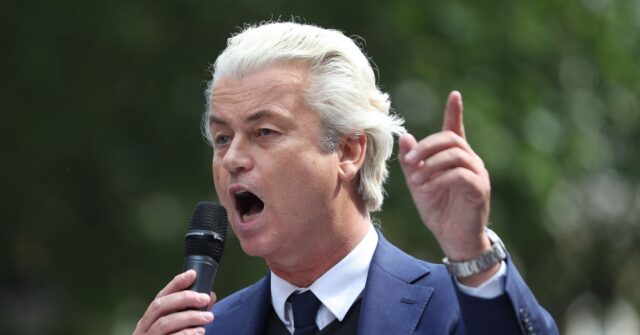In a notable political endorsement, Dutch populist leader Geert Wilders has expressed his support for former President Donald J. Trump as American voters prepare to choose their next leader. Wilders, the leader of the Party for Freedom (PVV) and a rising power figure within the Netherlands, highlighted the autonomy of American voters while making it clear that, if he were in their position, he would vote for Trump. His endorsement comes at a time when sentiments in Europe are increasingly turning against globalist and open-border policies, a stance that Wilders shares with Trump. His recent tweet accentuated the urgency of the political landscape, wishing Trump good luck in the presidential race.
Both Wilders and Trump have emerged as prominent voices against the globalist agenda, particularly regarding mass migration. The political climate in Europe has shifted considerably, with many voters rejecting the liberal policies associated with open borders. Wilders, after achieving a “mega victory” in last year’s Dutch general elections, has solidified his position as an influential populist leader, making history as his party became the largest in the country. This change reflects not only a shift in Dutch politics but also a ripple effect across the continent, suggesting a potential rise in populism more broadly in Europe.
A shared narrative between Wilders and Trump is the personal threat they face from political violence. Wilders has been under continuous police protection since 2004 in response to Islamist threats spawned by his outspoken criticisms of Islam. This level of risk was underscored by recent events in The Hague, where two Pakistani Islamists received prison sentences for inciting followers to kill Wilders. The threat of violence against right-wing politicians is not limited to the Netherlands; Wilders has pointed out that such dangers can easily translate across borders, warning of growing animosity toward conservative figures. The assassination attempt against Trump earlier this year has reinforced these concerns, prompting calls for increased security for right-wing politicians in Europe as well.
Support for Trump in Europe is not limited to Wilders, as several prominent figures across the continent have echoed similar sentiments. Brexit leader Nigel Farage and Hungarian Prime Minister Viktor Orbán both assert that Trump’s leadership is crucial for restoring peace, particularly in relation to the ongoing conflict in Ukraine. The geopolitical tensions stemming from the war have led various leaders to align with Trump’s perspective on national interests, emphasizing the need for strong leadership and a focus on securing the interests of their respective nations.
Additionally, Trump has garnered support from younger political leaders like Jordan Bardella, who recently led his party, National Rally, to considerable success in European Parliament elections. Bardella has praised Trump for his “America First” approach, emphasizing the importance of patriotism and prioritizing national interests. His commendation aligns with the growing trend among European populists who advocate for focusing on their citizens rather than the broader global agendas that have characterized much of recent political discourse.
In summary, Geert Wilders’ endorsement of Donald Trump is illustrative of wider populist trends in Europe, as leaders reject globalism and advocate for nationalist policies. Both Wilders and Trump navigate their political landscapes amid significant threats, drawing attention to concerns over security and political violence. The populist momentum in Europe, backed by figures like Farage, Orbán, and Bardella, signifies a re-evaluation of political priorities, advocating for strong national leadership that puts citizens first. As voters head to the polls, the implications of these endorsements and the broader populist movement will continue to shape political narratives and strategies on both sides of the Atlantic.

